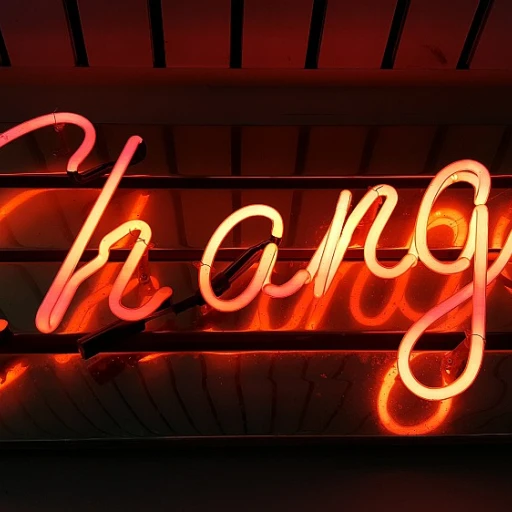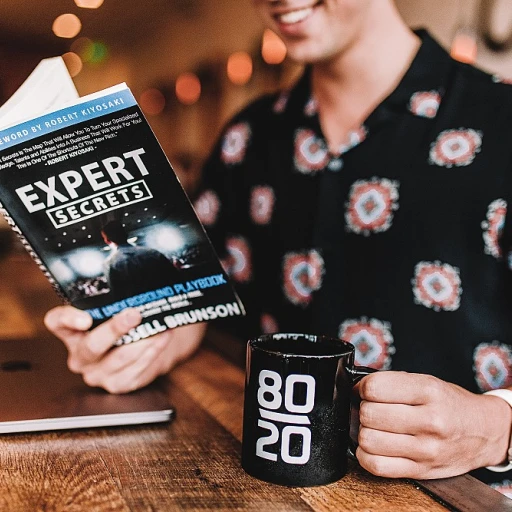
Understanding the Importance of Reference Checks
Why Reference Checks Matter in Hiring
In the hiring process, reference checks are a crucial step that can significantly influence the final decision. When hiring managers conduct reference checks, they are not only verifying the information provided by the job candidate but also gaining insights into the candidate's past performance, skills, and work ethic. This step is essential in assessing whether the candidate is a good fit for the company and the job title they are applying for.
Reference checks help employers understand more about the candidate's ability to handle the responsibilities of the position. By asking the right questions, hiring managers can uncover details about the candidate's previous employment, their performance in past roles, and any potential red flags that might not have been evident during the interview process. This information is invaluable in making informed hiring decisions.
Moreover, the way reference checks are conducted can impact the overall candidate experience. Ensuring that this process is respectful and efficient reflects positively on the company and can influence the candidate's perception of the organization. It's important to prepare adequately for these calls, as discussed further in the article, to ensure a seamless and effective reference check process.
For more insights on how to provide effective feedback during the hiring process, you might find these examples of interview feedback helpful.
Preparing for the Reference Call
Getting Ready for Your Reference Call
Before diving into the questions and reference checks, it's crucial to prepare effectively. Preparation sets the tone for a smooth and informative process. Start by gathering all relevant details about the job candidate, including their job title and work history. Highlight any red flags that emerged during the interview process that may warrant further investigation through references. Consider the best time to reach out to your references. Early mornings or late afternoons might be convenient for both you and the reference, allowing for an uninterrupted conversation. It's essential to confirm the preferred communication channel ahead of time, ensuring a positive experience for everyone involved. Also, craft a list of tailored questions that focus both on the candidate's skills and performance in previous roles. For instance, you might want to know how they describe the candidate's ability to contribute to a team or manage a challenging project. These questions should align with the candidate's future responsibilities within your company. Additionally, clarify the reference's relationship with the candidate. Are they a direct supervisor, a co-worker, or a team lead? Understanding their connection will help you gauge the relevance and depth of their insights. Finally, ensure you have a clear agenda for the conversation. Learn more about effective reference check strategies in enhancing candidate experience with effective 360 feedback questions. This preparation step is vital to conduct reference checks efficiently and helps maintain a streamlined hiring process.Essential Questions to Ask a Reference
Crafting the Right Inquiries for Detailed Insights
Asking the right questions when contacting a reference can greatly influence the success of your hiring process. These inquiries help you draw a comprehensive picture of the job candidate's past performance, work ethics, and skills, ultimately aiding in making informed hiring decisions. Here's a guide to essential questions that will uncover critical aspects of a candidate:- Job Performance and Strengths: Begin by asking the reference to describe the candidate's key strengths in the workplace. Questions like "How did the candidate contribute to your team or company?" provide insights into their capabilities and core skills.
- Team Dynamics and Collaboration: Understanding how a candidate interacts with others is crucial. Ask questions such as, "Can you describe how the candidate supported team initiatives or collaborated with colleagues?" to assess their teamwork abilities.
- Handling Challenges: Probe into the candidate's problem-solving abilities by asking, "Can you provide an example of how the candidate dealt with a challenging situation at work?" This will reveal their adaptability and resilience.
- Professional Growth and Potential: Inquire about the candidate's progress and areas for improvement with, "What are some areas where you believe the candidate could develop further?" This question can pinpoint potential red flags or future growth opportunities.
- Company Culture Fit: Fit within your corporate environment is essential for both the new employee and the team. Ask, "How would you describe the candidate's ability to align with your company culture?" to gauge compatibility.
Interpreting Reference Responses
Analyzing Responses for Informed Decisions
When you're in the midst of checking references, it’s essential to not only take notes on the answers but also interpret them effectively. Decoding the insights shared by a reference can guide hiring managers through the complex landscape of candidate evaluation and selection. A key aspect to focus on is how reference responses elucidate a candidate’s skills and abilities. For example, responses that vividly describe a candidate's work performance and style can reveal a lot about their fit for the job. Consider the following:- Consistency with Previous Performance: Does the reference consistently highlight the strengths that the candidate claimed during their interview? Aligning these observations helps validate a candidate's self-reported experiences and skills.
- Specific Examples of Behavior: Look for references providing detailed examples of how the candidate addressed particular challenges or contributed to team efforts. Such examples are often more telling than vague affirmations of competency.
- Indications of Growth and Learning: Ask questions that prompt references to describe the candidate's development over time. This insight can hint at the candidate's ability to learn and adapt in future roles.
- Potential Red Flags: Be on the lookout for hesitations or reluctance to provide detailed feedback. Such signals may warrant a deeper dive into specific areas of concern.
Ensuring a Positive Candidate Experience
Fostering an Open Line of Communication
Ensuring a positive candidate experience during the reference check process is crucial for retaining top talent and maintaining your company's reputation. A seamless and respectful process can leave candidates feeling valued, even if they don't ultimately land the job.- Clear and Transparent Communication: Begin by clearly explaining to candidates why reference checks are part of your hiring process and how they contribute to a comprehensive evaluation of their suitability for the job. Transparency helps candidates feel respected and informed.
- Timing and Scheduling: Inform candidates in advance about when reference checks will be conducted. Allow them to notify their references, ensuring that their contacts are prepared and not caught off guard by an unexpected call.
- Respecting Privacy: Handle reference information with care. Only collect and utilize the data that is necessary for evaluating the candidate's job performance and skills. Secure storage and confidentiality are vital to maintain trust.
- Handling Feedback: Following reference checks, provide general feedback to the candidate, especially if the process has influenced your decision. Constructive feedback during the hiring process can assist candidates in understanding areas for improvement.
Common Mistakes to Avoid in Reference Checks
Avoiding Pitfalls in the Reference Check Process
When conducting reference checks, hiring managers and team members should be aware of some common mistakes that could impact the hiring process and hinder an accurate assessment of a candidate's work and skills. Here are some key pitfalls to avoid:- Lack of Preparation: Proper preparation is vital. If you go into the reference call without a structured plan, you might miss out on gathering relevant insights about the candidate's performance and abilities. Ensuring you have prepared check questions in advance helps to guide the conversation and elicits useful information.
- Asking Leading or Vague Questions: The questions you pose in reference checks should be specific and neutral. Avoid leading questions that might skew the reference's response or any vague inquiries that do not yield substantial information. This approach assists in getting an authentic description of the candidate and avoids any red flags related to their employment history.
- Ignoring Red Flags: It's important not to overlook or dismiss red flags that might be mentioned during the reference check. Statements about inconsistencies in the job candidate's performance or unexplained employment gaps should be given due consideration, as they help to highlight areas that may need further investigation.
- Failing to Check Multiple References: Relying on a single reference can yield a skewed view of the candidate. It's best to check with multiple references to obtain a well-rounded perspective of the candidate's skills and past performance.
- Lacking Follow-Up: Don't forget to follow up on any ambiguous responses or when additional clarification is needed. Taking the time to do so ensures you have a complete understanding of the candidate's job performance.













